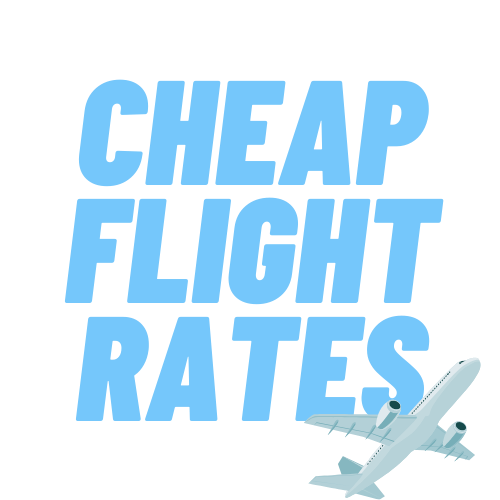- Airlines have been taking advantage of strong consumer demand to pass on some of the additional costs of oil and inflation with higher airfares.
- Consumers have turned away from discretionary goods, but they’re not willing to give up travel even as airfares surge.
- But if you’re a budget-conscious traveler, there are steps you can take to get you better prices.
Summer’s heating up and so is inflation. But even with airfares soaring, people are determined to take what they see as a much-needed vacation after two years of pandemic stress.
Air travel bookings turned sharply higher in March after the omicron wave faded and many destinations eased entry requirements, especially if you were fully vaccinated. Consumers were so eager to travel again, they did so even after oil prices rose to their highest level in about 14 years and faced the highest overall inflation in 40 years.
Fuel is the second-largest expense for airlines at around 30% of operating costs and has doubled in price from a year ago, according to the Energy Information Administration. And airlines have been taking advantage of strong consumer demand to pass on some of those additional costs with higher airfares.
“My coach ticket from Chicago to Phoenix was $1,300, which is over three times the usual fare,” said Tom Blew, who took his trip last month to visit family and friends. “I guess pent-up demand isn’t price-sensitive, and there are very few options unless you want to fly in the middle of the night.”
Travel: No longer optional but a necessity
Consumers have recently turned away from discretionary goods amid surging inflation to afford everyday necessities like groceries and rent, but there are no signs they’re willing to give up travel even as airfares surge. In April, airline tickets jumped by 8.6 %, the largest one-month increase since the Bureau of Labor Statistics started tracking this in 1963.
In the first three months of this year, travel spending exceeded spending on general merchandise (think stuff you can buy on Amazon), which is tapering off. In March, consumers spent $1,290 on average for travel compared with $819 on general merchandise, data from wealth management firm Personal Capital showed.
“In March, we saw what’s possible, with surging demand brought on by reduced infection rates, relaxed restrictions and tremendous pent-up demand for people to travel,” said Robert Isom, chief executive officer at American Airlines in its earnings conference call. “Demand is as strong as we’ve ever seen it.”
Delta’s President Glen Hauenstein agreed, saying in an April earnings call profit margins are looking good “as fuel prices have continued to run up and demand continues to remain strong.”
That’s because people want to spend time with family and friends, a Deloitte survey of 4,233 Americans fielded March 23-30 showed. That desire is likely to boost travel above both 2021 and pre-pandemic levels, with six in 10 Americans planning trips, up from 50% last year, Deloitte said. Of those, half said they planned to fly and 28% expected to pay “significantly more” for their trips than they did in 2019 due partly to inflation and more savings.
“After two years of the pandemic, we were long overdue to make up for lost time with family,” said Andres Olarte who recently returned with his family from a five-week trip to Costa Rica. It was his first trip back to his hometown since 2019 and the first time many of his family and friends got to meet his youngest son, born in 2021.
“We booked our flights months in advance but did splurge getting direct flights,” he said.
POST-PANDEMIC LIST: 100 things we can’t wait to do when the pandemic ends: Hug friends, go to concerts and more
BRIGHTER SUMMER: What will COVID-19 look like this summer? Health experts say the virus won’t be endemic, yet.
Price insensitivity
Airfares are also likely to continue rising, boosted by ongoing strong demand and elevated oil prices. World benchmark Brent crude was last above $117 per barrel, and JPMorgan analysts see prices above $120 this year.
But none of that has deterred consumers.
“They’re planning and anticipating for it and paying the higher price,” said Matthew Howe, senior manager of travel intelligence at research firm Morning Consult. “Revenge travel is definitely a real thing. People have been waiting and are ready to get back out and experience the world.”
RECOVERING TIME: Didn’t travel at all during COVID-19? How to make up for lost time and lost opportunities
FLIGHT BOOSTS: Southwest is changing its in-flight experiences: 5 things coming this year and next
Although Ed Bastian, Delta chief executive officer, is optimistic air travel will stay strong into the fall, he warned on the earnings call he’s always on the lookout for consumer price resistance.
“When we start to see pricing, particularly with high input costs like fuel, starting to challenge our demand and supply assumptions, then we’ll take the next step up,” Bastian said.
To ensure operations go smoothly this summer, airlines have trimmed their flight schedules to give themselves some wiggle room if something goes awry. On Thursday, Delta joined American, Spirit Airlines, Alaska Air and JetBlue in cutting some flights to its summer schedule so it could “minimize disruptions and bounce back faster when challenges occur,” it said in a statement on its website.
While consumers may benefit from better service, fewer seats will likely mean more competition for existing seats and even higher prices.
Don’t want to pay up? Tips for finding lower airfares
For those who want to fly but avoid chasing ever-increasing prices this summer, Expedia travel expert Christie Hudson offers some tips:
► Timing travel
Of all the summer months, August is the cheapest. The “sweetest spot” is the last two weeks of the month as some schools go back in the south and it’s right at the end of summer before Labor Day, she said.
Mid- to early-week travel days are the least expensive with Fridays the most expensive.
Avoid traveling on summer holidays like the 4th of July, which tends to be the most expensive.
BUDGET CONSCIOUS: Breeze Airways: A look at new budget airline
SAVE BIGGER: The battle for Spirit Airlines just got more interesting: Airline says it will entertain JetBlue’s $3.6 billion offer
► When to book
Usually, booking airfare is the cheapest two weeks to a month in advance of your travel days. If you’re a planner and that seems too close for your comfort, Hudson suggests booking further out while using a price match guarantee service.
► Package booking
If you’ll also need a place to stay, Hudson recommends booking all your travel in one place to get a package rate. These are deals on airfare and lodging that are only available through packages, she said.
The bonus is that you can still get your airline miles and rewards. “So, you’re saving money and collecting rewards,” she said.


Comment (0)